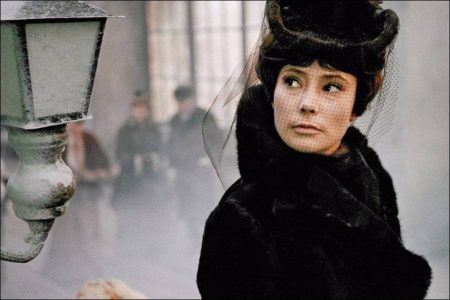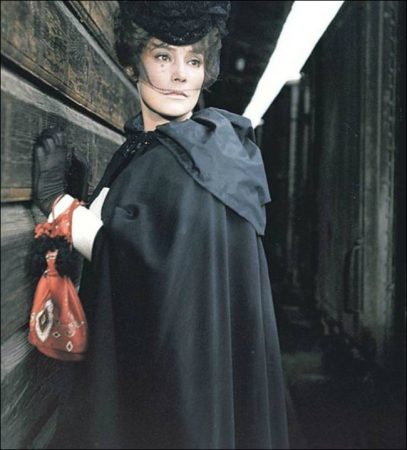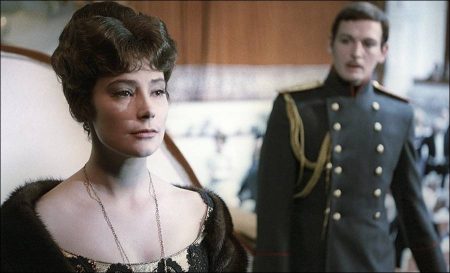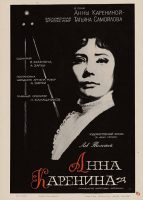
Anna Karenina movie storyline. After several previous attempts by foreign directors who miss the mark, this Russian film version of Leo Tolstoy’s classic novel Anna Karenina most accurately follows the Tolstoy novel and remains superior to all other versions to date. It concerns the struggle of a woman to find her place in Russian society. Anna (Tatiana Samoilova) is shunned by society when she leaves her older husband and small son for the dashing young cavalry officer Vronsky (Vassili Lanovai).
The officer is torn between his love for Anna and his social and military responsibilities. Bolshoi ballet star Maia Plisetskaya is the noble Princess who at first helps Anna, then turns her back on her. Anna is caught between the worlds of high society and privilege and the downtrodden peasants who are victimized by the economic elite. She tries desperately to follow her heart as she is harshly judged by society for trying to find her place.
Anna Karenina (Russian: Анна Каренина) is a 1967 Soviet drama film directed by Aleksandr Zarkhi, based on the 1877 novel of the same name by Leo Tolstoy. The cast are famous Soviet actors and actresses like Tatiana Samoilova, Nikolai Gritsenko, Vasili Lanovoy, Yury Yakovlev, Boris Goldayev, Anastasiya Vertinskaya, Iya Savvina, Maya Plisetskaya, Lidiya Sukharevskaya, Elena Tyapkina, Sofiya Pilyavskaya and Vera Burlakova. It was listed to compete at the 1968 Cannes Film Festival, but the festival was cancelled due to the events of May 1968 in France.
Cast and Characters
Tatiana Samoilova as Anna Karenina
Nikolai Gritsenko as Karenin
Vasily Lanovoy as Vronsky
Yury Yakovlev as Stiva Oblonsky (as Yu. Yakovlev)
Boris Goldayev as Konstantin Levin
Anastasiya Vertinskaya as Kitty
Iya Savvina as Dolly
Maya Plisetskaya as Knyagina Betsy
Lidiya Sukharevskaya as Lidiya Ivanovna
Yelena Tyapkina as Knyagina Myagkaya
Sofia Pilyavskaya as Grafina Vronskaya
Andrei Tutyshkin as Lawyer
Vasili Sakhnovsky as Seryozha (as Vasya Sakhnovsky)
Anatoly Kubatsky as Camerdiner Kapitonich
Yuri Volyntsev as Vronsky’s brother-soldier
Film Review for Anna Karenina
When adapting any classical work of literature, a director can shine like a beacon of creative light if understands the work and organically adds his own touches to it. There are countless ways to do it and the there are hardly any limits (except budgetary ones most probably). But the director HAS to understand the book, it’s main thread, and put it across so that the spirit remains unchanged.
Aleksandr Zarkhi does it beautifully. He is perhaps the best director who tackled Karenina, tied in with Joe Wright. He’s marvelous. His camera work, his editing and framing devices are truly marvelous. I think you get the picture – I really admire Zakhri after watching this movie. The way he depicts passages of time, his usage of hypnotizing, rhythmical sounds, the rotations, the dizziness and sense of being lost, the golden mean she uses in frames, how society literary suffocated Anna both literary and visually – they are but just a few of the moments I noticed and appreciate. I am sure there is a treasuretove of small details in the movie that bear repeated viewings, but it’s more than worth it – this is a once in a lifetime film that combined so many things in such a right way! I am ad that, obviously due to the Cold war, they could not film Italian parts in Italy, but the Russian parts are filmed in beautiful locations and are a joy to watch.

But now for the less than stellar parts. Sadly, the story suffers from truncation effects and doesn’t have enough time to develop everything properly. The same problems that plague other daptations are present here – everything happen too soon and we do not get the delicate timeframe of a very confused woman and a very persistent man crushing incredible odds to be together. But at what price? Anna’s relationship with her daughter is also thrown out, as is her drug addiction. Levins story-line is a bit better fleshed than in some other adaptations, but still it’s far from being a proper showing of an intense inner battle of a lost man. Ah Levin, you never seem to get your due!
The actors are mostly very good. Tatiana Somilanova, while not my favorite Anna, has that luscious voluptuousness that makes her absolutely irresistible. Kudos to actress who plays Princess Betsy, she’s an absolute delight and exactly what I imagine Betsy to be. Another highlight is Nikolai Gritsenko as Karenin, he’s pitiful and hateful at the same time, and played with a touch of a master that constantly flirts with caricature but never once steps over the line (a hallmark of a truly great actor who know exactly what he is doing). However, Vasily Lanovoy as Vronsky is mid-tier, nothing too bad but nothing too good either. The hair and make-up are so 1960s it’s jarring sometimes. The costumes are a freestyle and not really historically accurate, I quite liked them. Overall, this is a classic, and a one that warrant repeated watching.
Anna Karenina (1967)
Directed by: Aleksandr Zarkhi
Starring: Tatiana Samoilova, Nikolai Gritsenko, Vasili Lanovoy, Yury Yakovlev, Boris Goldayev, Anastasiya Vertinskaya, Iya Savvina, Maya Plisetskaya, Lidiya Sukharevskaya, Elena Tyapkina, Sofiya Pilyavskaya, Vera Burlakova
Screenplay by: Vasili Katanyan, Aleksandr Zarkhi
Production Design by: Aleksandr Borisov, Yuri Kladiyenko
Cinematography by: Leonid Kalashnikov
Film Editing by: N. Petrikin
Costume Design by: Lyudmila Kusakova
Set Decoration by: Ye. Ivanov
Makeup Department: Tamara Krylova
Music by: Rodion Shchedrin
MPAA Rating: None.
Distributed by: Svensk Filmindustri (1970) (Sweden)
Release Date: November 6, 1967
Views: 324

